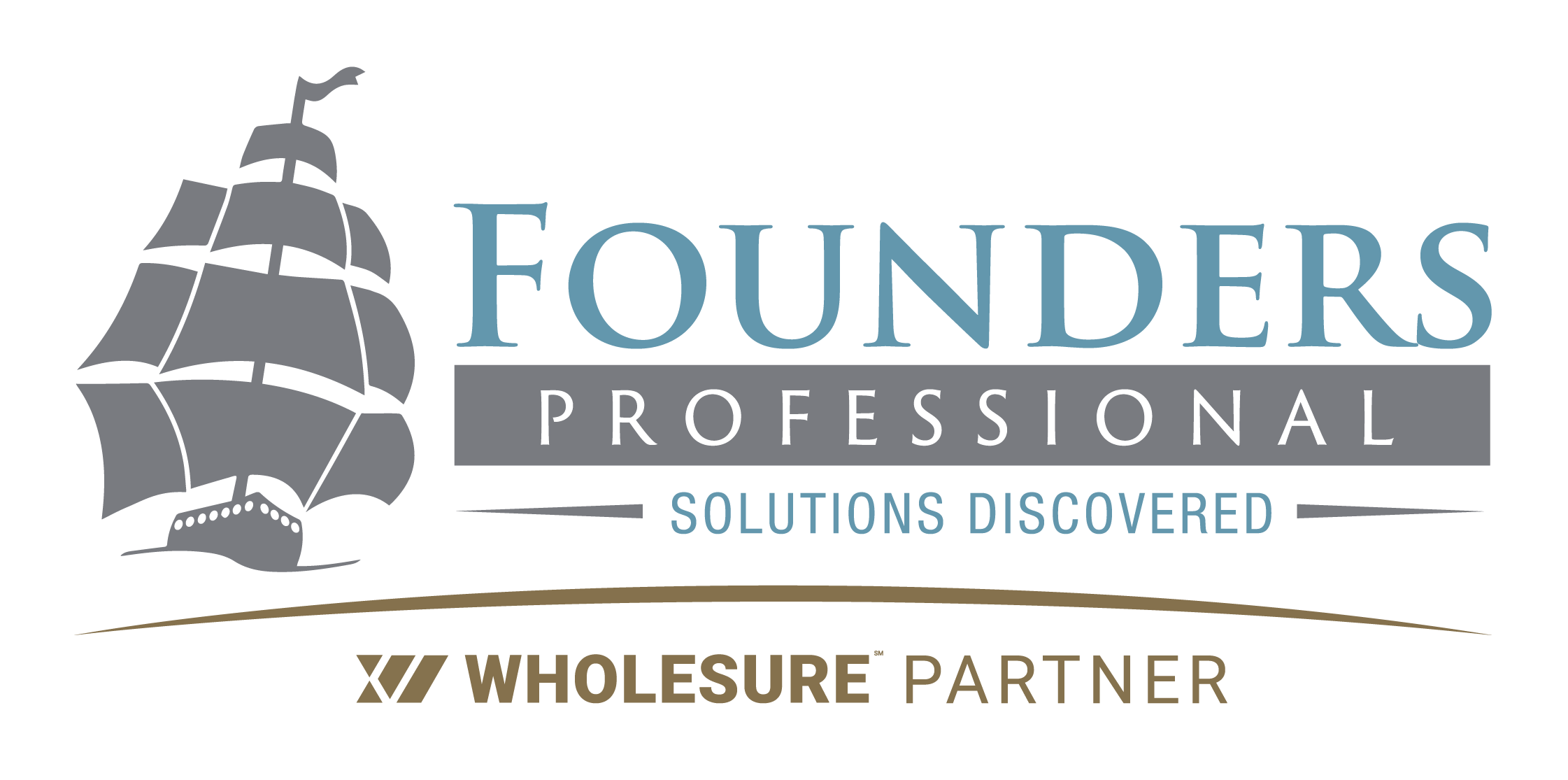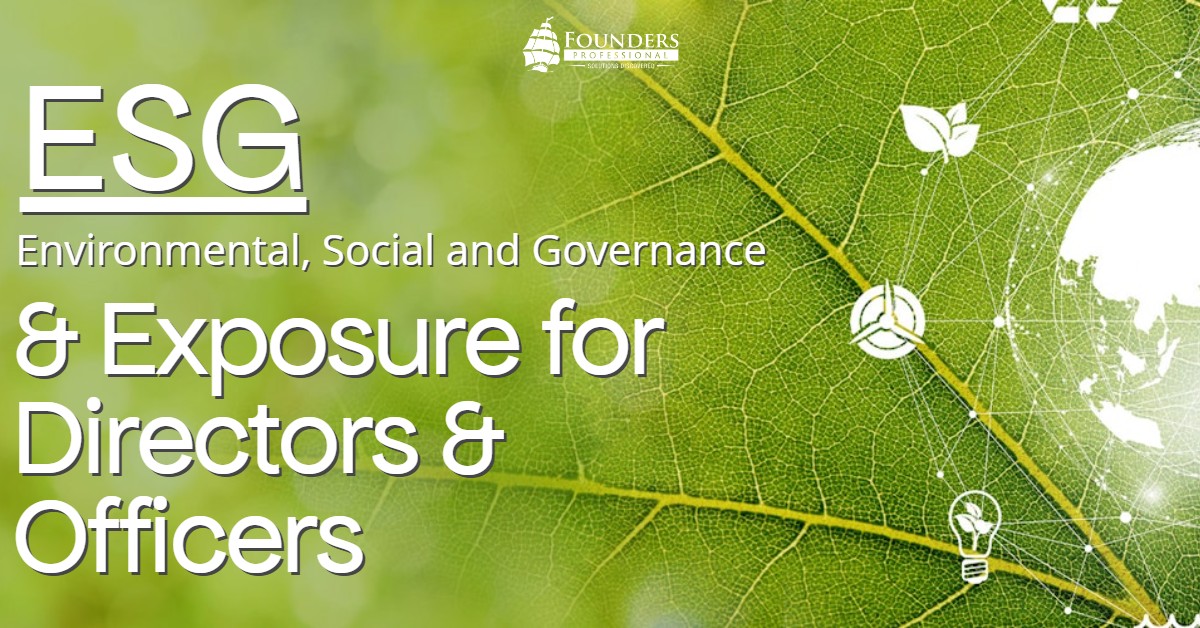ESG and Increased Exposure for Directors and Officers
In the fast-evolving landscape of corporate governance and Directors and Officers Liability Environmental, Social and Governance Insurance (D&O) claims have seen a notable surge, with Environmental, Social and Governance (ESG) factors playing a pivotal role. This article discusses what ESG is and how it can increase the directors’ and officers’ exposure to litigation.
As businesses face heightened scrutiny in environmental responsibility, social equity and ethical governance, directors’ and officers’ claims are on the rise, creating a complex terrain for directors and officers to navigate.
Environmental Issues
Concerns, such as pollution, climate change, and regulatory non-compliance, have become a major risk factor for directors and officers making decisions regarding the direction of their companies.
Going green is great for business. There is a large demand for environmentally sound products, whether that means they are more natural, healthier, free of chemicals, recyclable or less wasteful of natural resources. Consumers today are more environmentally conscious than ever before and they are more likely to purchase a product that they view as environmentally friendly, verses one that is not. Going green not only aligns companies with public sentiments, but also boosts brand reputation.
There is a dark side to the trend of companies going green and that is Greenwashing. Greenwashing (also called green sheen) is the process of conveying a false impression or misleading information about how a company’s products are environmentally sound. Greenwashing involves making an unsubstantiated claim to deceive consumers into believing that a company’s products are environmentally friendly or have a greater positive environmental impact than they actually do.
An example of green washing litigation happened in 2023. An environmental group sued KLM Airlines and its directors and officers alleging its advertising campaign “Fly Responsibly” misled consumers into believing that its flights do not contribute to climate change. The lawsuit alleged that the carbon-offsetting claims were misleading and amounted to greenwashing. The litigation is ongoing today
Environmental risks to directors and officers are increasing because the SEC has proposed new rules that would require public companies to provide standardized climate disclosures. This new regulation would require organizations to provide certain climate disclosures in its registration statements and annual reports.
Social Issues
Corporate social topics include diversity, inclusion, community-focus, social-justice and corporate ethics, in addition to fighting against racial, gender, and sexual discrimination. Companies have increased efforts to fight discrimination and promote inclusion internally, such as in their hiring practices, and externally when promoting their products. Unfortunately, some companies have discovered that doing the right thing can have negative consequences.
In 2023, brands like Target, Bud Light and Kohls faced backlash from groups that disagreed with their actions in support of the LGBTQ community. The three companies’ actions cost them collectively an estimated market value loss between $20 billion to $30 billion. As a result, a conservative legal organization, on behalf of Target’s investors, sued the company and its directors and officers.
Those events have some brands scaling back or simply keeping quiet about their social-focused initiatives. This practice is now labeled as green hushing. Green hushing is a strategy companies use when they choose not to emphasize their ESG efforts. Some companies even avoid using the acronym ESG, often to protect their brand image or to maintain a competitive advantage in the market.
Governance: What is it?
Corporate governance is the set of rules, practices, and processes by which a company is directed and controlled. Corporate governance is essentially a code of conduct that balances the interests of a company’s shareholders, management, customers, suppliers, lenders, the government and the community.
Governance lapses, such as ethical misconduct and failure to uphold fiduciary duties, can lead to shareholder class actions. In the early 2000s, companies like Enron, Worldcom and Tyco had catastrophic governance failures costing D&O carriers hundreds of millions of dollars. These failures lead to the creation of the Sarbanes–Oxley Corporate Fraud Act of 2002, which put safeguards in place to protect shareholders and hold companies accountable.
Even though these companies had the most comprehensive governance policies and procedures, they all lacked the ethics and integrity to implement them. The following quote crystallizes the disconnect between having high governance ideals, but no actual implementation.
“We believe in conducting business affairs in accordance with the highest ethical standards. An employee shall not conduct himself or herself in a manner which directly or indirectly would be detrimental to the best interests of the Company or in a manner which would bring to the employee financial gain separately derived as a direct consequence of his or her employment with the Company.”
Ken Lay
CEO Enron
So, is the issue of ESG for companies “damned if you do, damned if you don’t”? Not necessarily. There will always be detractors when companies try to do the right thing. Companies should have specific goals and the confidence in the execution of those goals. History tells us doing the right thing is good for business, but more importantly good for our communities and the planet.
About the Author
Dan Vecchio is the Management Liability Practice Leader for Founders Professional. Dan helps retail insurance agents, across the Country, to place their distressed management liability insurance risks for businesses of all sizes across a multitude of industries. Dan can be reached at [email protected].

